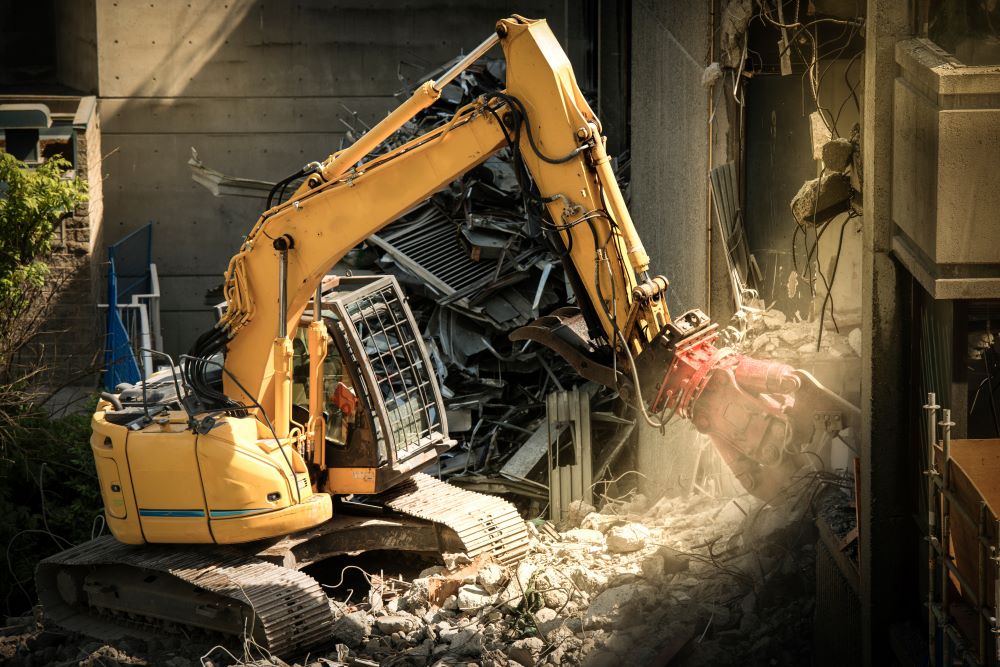
Unlock Industrial Potential with Legit Demolition Services
The act of disassembling or demolishing a building, structure, or other tangible item is known as demolition. It is an essential component of the building and real estate sectors since it creates the foundation for new construction, site renovations, and site reuse. Demolition plays a crucial part in the growth and alteration of our physical environment, whether it is dismantling decaying buildings, clearing out an old industry, or creating room for a new high-rise.
Industrial customers can be sure that their project will be carried out with the highest care and expertise, reducing interruptions and optimizing the advantages of the demolition process, by partnering with a reliable and skilled demolition firm.
OUR SERVICES
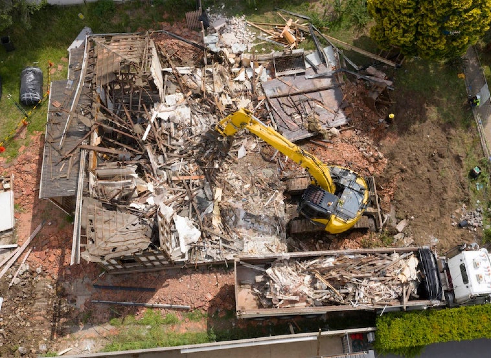
Structure Demolition. Residential, Commercial & Industrial
If your structure poses a health, safety, or environmental risk, demolition can prevent costly citations or fatal accidents. While this may seem daunting, you are just a phone call away from having your residential demolition done professionally, responsibly, and at a great price.
Talk to a Demolition Specialist Now! 916.249.5001
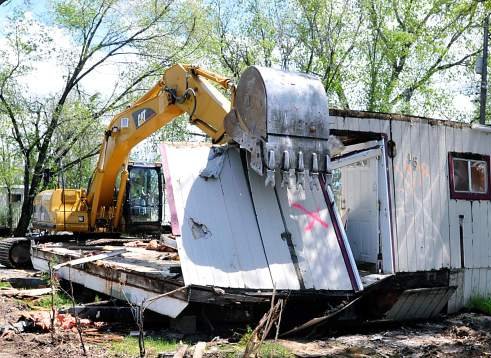
Mobile Home Demolition
We demolish and haul away mobile homes. Any size, anywhere, anyhow. We are fast, clean and competitive. We serve most of Northern California. There are many factors to consider when removing or demolishing your old trailer, mobile home, or manufactured home like: the processes involved, costs, time, contractors, debris, and permits.
Talk to a Demolition Specialist Now! 916.249.5001
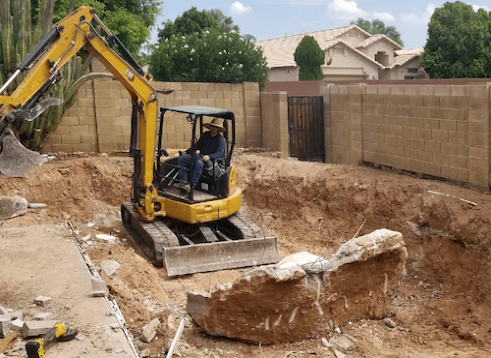
Pool Demolition
When removing a pool in Sacramento, California with the professional demolition team of Maxton Demo, you’re guaranteed peace of mind from beginning to end. From your initial request for an estimate to clean-up, you can expect our pool demolition process that’s completely professional and safe.
Talk to a Demolition Specialist Now! 916.249.5001
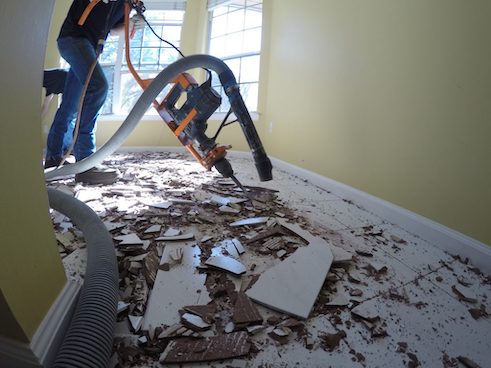
Floor Demolition
Flooring demolition, like any other major home renovation work, requires a specific set of skills and tools to be performed properly. You need experts in flooring demolition to get you the best floors possible. Contact us to find out more about how we can help you today.
Talk to a Demolition Specialist Now! 916.249.5001
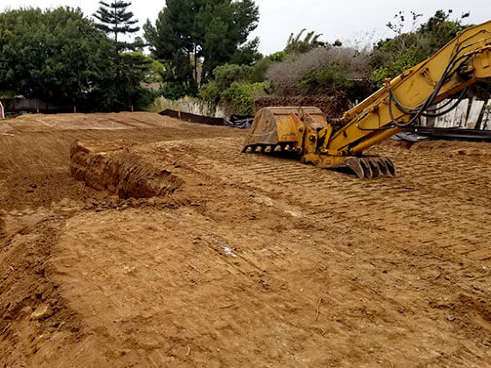
Grading & Excavating
If you need an experienced excavator and grader in Sacramento, call us today. One of the many reasons that residential, commercial, and industrial customers choose to work with us is because we’re able to provide a broad range of services to help construction-related projects get done in less time and at a reduced cost.
Talk to a Demolition Specialist Now! 916.249.5001

Roof Snow Removal
Heavy snow & ice dams can cause significant roof and home damage. Roof Snow removal is our specialty during the winter months. Serving the Sacramento, California area for 10 years, we can get your roof snow removed and promise a quick response and reasonable rates.
Talk to a Demolition Specialist Now! 916.249.5001
The Various Demolition Service Types
There is no one-size-fits-all approach to demolition services. The particular requirements and features of the project will determine the kind of demolition that is needed. Expert demolition businesses usually provide a variety of services to meet the various needs of their customers.
Building demolition is one of the most popular forms of demolition; it entails taking down a structure whole or in part. Depending on the size and complexity of the structure, this might include residential, commercial, or industrial structures. The procedure may entail the use of explosives, heavy equipment, or human work.
Selective demolition is a different kind of demolition service that involves removing certain parts or components of a structure with intention. This is often necessary for projects involving rehabilitation or repurposing, when it’s necessary to remove certain components while keeping the building intact. To guarantee that the remaining components of the structure are not jeopardized, selective demolition calls for a high degree of accuracy and expertise.
Industrial demolition is a kind of demolition that is specifically designed to meet the demands of the logistics, manufacturing, and processing industries. Entire manufacturing buildings, complicated machinery, and heavy equipment may need to be removed during this kind of destruction. Industrial demolition specialists need to be proficient in potentially dangerous conditions and possess a thorough grasp of the tools and infrastructure unique to the industries they serve.
Many demolition businesses also provide extra services, including asbestos abatement, hazardous material disposal, and site cleanup, in addition to these basic services. For demolition projects to be carried out safely and responsibly toward the environment, these specialist services are essential, especially in industrial settings where the presence of hazardous chemicals is a typical worry.
Advantages of Collaborating with a Skilled Demolition Service Provider
Collaborating with an expert service provider in the demolition domain may provide many advantages that can greatly improve the project’s performance and results. The following are some of the main benefits of hiring a trustworthy demolition service provider:
Expertise and Experience: As a highly specialized sector, demolition calls for a thorough knowledge of structural engineering, building methods, and safety regulations. Professional demolition service providers ensure that your job is carried out with the utmost competence and efficiency by assembling teams of seasoned professionals who have spent years honing their craft.
Safety and Compliance: Working in demolition may be hazardous by nature since there is a chance of exposure to hazardous materials or structure collapse. Expert demolition services place a high priority on worker safety and follow stringent industry guidelines and safety procedures to reduce hazards and safeguard the public, the environment, and their employees.
Specialist Equipment: Heavy equipment, specialist tools, and cutting-edge technologies are often needed for demolition operations. Expert demolition businesses make significant investments in cutting-edge machinery and technology to guarantee that they have the necessary instruments for the task and can do it quickly and securely.
Environmental Responsibilities: Reducing a project’s negative effects on the environment requires careful demolition techniques. Professional demolition services are dedicated to recycling and reusing materials wherever feasible to decrease waste and minimize the carbon footprint of the demolition process. They also have a thorough awareness of environmental rules and best practices.
Cost-effectiveness: Although hiring a professional demolition service provider may have up-front costs, there are often long-term savings that offset these costs. Expert demolition service providers are able to recognize such issues early on and take appropriate action to prevent expensive delays or unforeseen costs later on. Additionally, compared to trying to do the demolition work internally or with an unskilled contractor, their knowledge and effective procedures might result in considerable cost savings.
Things to Take into Account While Selecting a Demolition Service Provider
There are a number of important things to take into account when choosing a demolition service provider for your industrial project in order to make the best decision. The following are a few of the most crucial things to remember:
Experience and Expertise: Seek out a demolition business that has a track record of effectively finishing jobs comparable to yours. Ask about their industry expertise, the tools and methods they use, and how they handle demolition projects in general.
Safety Record: When selecting a demolition service company, safety needs to come first. Examine the organization’s safety procedures, educational offerings, and record of incidents and accidents to make sure the health and safety of its employees come first.
Certifications and Licensing: A reputable demolition service provider should have the appropriate training and certifications to carry out the job in a safe and legal manner. Their team members should also be insured, bonded, and licensed. Check these qualifications before choosing a partner.
Environmental commitment: Particularly in the industrial sector, ecologically sound and sustainable demolition techniques are crucial. Choose a business that is dedicated to minimizing waste and lowering its carbon footprint and that has a proven track record of recycling and reusing products.
Communication and Project Management: For a demolition project to go smoothly and successfully, effective communication and project management skills are essential. Evaluate the company’s capacity to communicate with other stakeholders, offer timely and clear updates, and adjust to the needs of the project as it changes.
Competitive Pricing: To make sure you are obtaining fair and competitive pricing for the scope of work, compare quotations from many demolition service providers. Cost shouldn’t be the only consideration, but it is crucial to do so. Bids that seem to be far below the market average should be avoided, as they might be an indication of inexperience or unstated expenses.
By carefully weighing these variables, you may choose a demolition business that will satisfy your project’s needs while also offering the knowledge, security, and environmental consciousness required to maximize the potential of your industrial property.
Procedures for the Demolition Process
Usually, a set of clearly defined procedures is followed throughout the demolition process to guarantee the project’s safe and effective completion. The following broad framework gives a reasonable idea of the normal demolition process, while the precise procedures may vary based on the size and complexity of the work:
Project Planning and Preparation: Before beginning any demolition work, the site must be thoroughly inspected. This inspection should include the building’s structure, the existence of hazardous chemicals, and any possible dangers or difficulties. Using this data, a thorough demolition plan is created that details the steps to be taken, the tools and materials needed, and the safety precautions that must be taken.
Permits and Approvals: Different permits and approvals from local authorities, regulatory agencies, or other stakeholders may be necessary, depending on the location and the type of the demolition project. The demolition business will be in charge of securing the required licenses and making sure that all relevant rules and laws are followed.
Utility Disconnection: All utility services, such as gas, water, electricity, and telecommunications, must be securely disconnected and separated from the building or structure before demolition work may start. To avoid unintentional damage or interruptions during the demolition process, this step is essential.
Hazardous Material Abatement: Before demolition can begin, any hazardous materials present in the building or structure, such as asbestos or lead-based paint, must be carefully identified, confined, and removed by qualified experts. The community at large as well as the demolition workers’ health and safety depend on taking this action.
Structural Demolition: After the preliminary work is finished, the demolition operation itself may start. This may include the use of large equipment, such as excavators, bulldozers, and wrecking balls, or more specialized methods, like controlled explosions or hand dismantling, depending on the size and complexity of the building.
Debris Removal and Site Cleanup: Following the building’s demolition, the debris has to be carefully collected and sent to a suitable recycling or disposal location. In order to prepare the site for the next stage of the project, the demolition service provider will also be in charge of making sure it is completely cleaned and restored to a safe and presentable state.
Site Remediation and Restoration: Sometimes environmental pollution or other problems that call for further remediation work are found during the demolition phase. It can be the demolition service provider’s responsibility to work with environmental professionals to resolve these issues and guarantee that the site is prepared for reuse or redevelopment.
A professional demolition service provider can guarantee that the demolition process is carried out safely, effectively, and in accordance with all applicable laws and industry best practices by adhering to these guidelines.
Safety Measures to Take While Demolition
In the demolition sector, safety is crucial since the activity itself poses serious dangers to workers and society at large. Expert demolition service providers tackle safety from all angles, putting in place a variety of safeguards and procedures to reduce hazards and keep everyone safe.
Creating a thorough safety plan that describes the particular risks connected to the project, the actions to be taken to mitigate those risks, and the duties and obligations of the demolition team is one of the main safety precautions. This strategy is predicated upon a comprehensive evaluation of the building’s architecture, the location, and any possible obstacles, like the existence of hazardous chemicals or the close vicinity of neighboring buildings.
Another essential element of demolition safety is personal protective equipment (PPE). To protect oneself from falling debris, sharp objects, and other dangers, demolition workers must wear the proper personal protective equipment (PPE), such as hard helmets, safety glasses, gloves, and steel-toed boots. It is the demolition service provider’s responsibility to provide, maintain, and guarantee that personnel are adequately educated in the operation of this equipment.
Tight safety measures are also put in place while the demolition is really happening. This might include creating safe zones, limiting access to the work area with warning signs and barriers, and putting emergency response plans into action in case of an accident or incident. Additionally, demolition contractors collaborate closely with law enforcement, police, and fire services in the area to make sure the operation doesn’t endanger the neighborhood.
Demolition businesses place a high priority on their employees’ continual training and development in addition to these on-site safety precautions. This involves holding frequent safety meetings, offering refresher training, and putting continuous improvement plans into place in order to find and fix any holes or weak points in the business’s safety procedures.
Professional demolition businesses may reduce the hazards involved with their work and make sure that their projects are carried out in a way that safeguards the environment, the community, and the well-being of their personnel by adopting a thorough and proactive approach to safety.
Typical Obstacles in the Demolition Sector
Although the demolition business is essential to the evolution and development of our built environment, it also confronts a number of particular difficulties that need to be handled carefully and knowledgeably. If an industrial customer wants to hire a skilled demolition service provider, they must be aware of these issues.
A major obstacle faced by the demolition sector is the existence of dangerous materials, including asbestos, paint containing lead, and other poisonous compounds. If not appropriately recognized and managed, these materials may provide serious health dangers to both the surrounding population and the workforce. In order to securely contain, remove, and dispose of these hazardous materials in compliance with stringent environmental requirements, demolition contractors must possess the requisite knowledge and equipment.
The inherent risk of the demolition process itself presents another difficulty. Demolition work is dangerous due to the usage of large equipment, the possibility of structural collapse, and the risk of falling debris. To reduce these dangers and safeguard all parties, demolition businesses need to put strict safety procedures into place, educate their employees thoroughly, and maintain a strong safety culture.
Demolition project logistics may sometimes be quite difficult, especially in urban or industrial environments where there is a shortage of space and potential barriers to site access. In order to minimize interruptions to nearby businesses, traffic, and the local community, demolition contractors must meticulously organize and coordinate their actions. This is necessary to ensure that the project is completed efficiently and on schedule.
Environmental issues pose a serious threat to the demolition business. Large volumes of garbage may be produced during demolition operations; in order to reduce the effect on the environment, this debris has to be recycled or disposed of appropriately. Additionally, demolition contractors need to be aware of the possibility of contaminating the soil or groundwater and take the necessary precautions to resolve these concerns.
Lastly, depending on the project’s location and nature, a complicated web of rules and compliance requirements may apply to the demolition sector. It is essential for demolition businesses to be informed about the most recent legislation, get the required permissions and approvals, and guarantee that their activities align with all relevant laws and standards.
A professional demolition service provider can help their industrial customers realize the full potential of their buildings by recognizing and tackling these typical obstacles and offering the necessary experience, resources, and dedication to safety and sustainability.
Environmental Factors in the Demolition Process
Due to the potential for major environmental effects from the destruction and disposal of buildings, environmental responsibility is a crucial factor in the demolition business. Expert demolition service providers are dedicated to reducing the environmental impact of their projects and recognize the value of integrating sustainable practices into their business operations.
The handling and disposal of garbage is one of the main environmental issues in demolition. Demolition operations may produce a lot of waste, including steel, concrete, wood, and other items. Reusing and recycling these items is a top priority for conscientious demolition contractors since it keeps them out of landfills and lessens the project’s total environmental effect.
Demolition contractors have to be concerned with soil and groundwater pollution in addition to trash disposal. Before the demolition process can start, any hazardous elements present in the building or structure, such as asbestos or lead-based paint, must be carefully identified, confined, and removed. In order to guarantee that these materials are handled and disposed of in compliance with all relevant requirements and prevent any damage to the nearby ecology, demolition service providers maintain close collaboration with environmental professionals.
The effect demolition has on air quality is a significant environmental factor. Significant volumes of dust and particulate matter may be produced during the demolition process, endangering the health of both the workers and the neighborhood. To reduce the amount of these airborne contaminants released, demolition service providers use a variety of dust control techniques, including the use of water sprays, enclosed work spaces, and air filtering equipment.
Professional demolition service providers think about their projects’ long-term sustainability in addition to the short-term effects of destruction on the environment. This might include using water-saving techniques, utilizing renewable energy sources, and implementing energy-efficient equipment, as well as other green construction practices. A demolition service provider may assist their industrial customers in meeting their environmental objectives and improving the overall sustainability of their facilities by adopting a comprehensive approach to sustainability.
Professional demolition businesses may reduce the immediate effect of their projects and help to the long-term sustainability of the built environment by making environmental responsibility a priority in their operations. Industrial customers are becoming more aware of the value of sustainable techniques in the renovation and transformation of their buildings, so choosing a demolition service provider that shares this dedication to environmental stewardship is crucial.
Estimating Demolition Project Costs
A cost estimate is an essential part of the planning and budgeting process for demolition projects. To make educated choices and utilize resources efficiently, industrial customers must have a comprehensive idea of the estimated expenses related to their demolition project.
A demolition project’s cost may vary greatly based on many aspects, such as the structure’s size and complexity, the existence of hazardous chemicals, the site’s accessibility, and the particular tools and methods needed. Professional demolition service providers have a thorough approach to cost assessment, accounting for these and other elements to provide their customers with clear-cut, precise quotes.
The people and equipment needed for the project are two of the main factors influencing demolition expenses. Because demolition work is so specialized, it often calls for the employment of large equipment, specialized tools, and a group of skilled people. The local labor market, the availability of experienced workers, and the particular tools required for the task may all affect how much these resources cost.
Waste management and disposal represent substantial additional cost elements. Demolition operations may produce a lot of waste, as was previously indicated, and this trash has to be transported and disposed of in an ecologically friendly way. The kind of trash, the distance to disposal locations, and the taxes related to recycling or landfills may all affect the cost of garbage disposal.
Expenses may also rise as a result of following environmental laws and making sure that dangerous items like asbestos or lead are handled properly. These expenses may be reduced with the use of efficient waste management techniques, such as recycling and material repurposing, but they still account for a significant amount of the project budget.
Do you have a Question?
Talk to a Demolition Specialist Now! 916.249.5001
Request Formal Quote